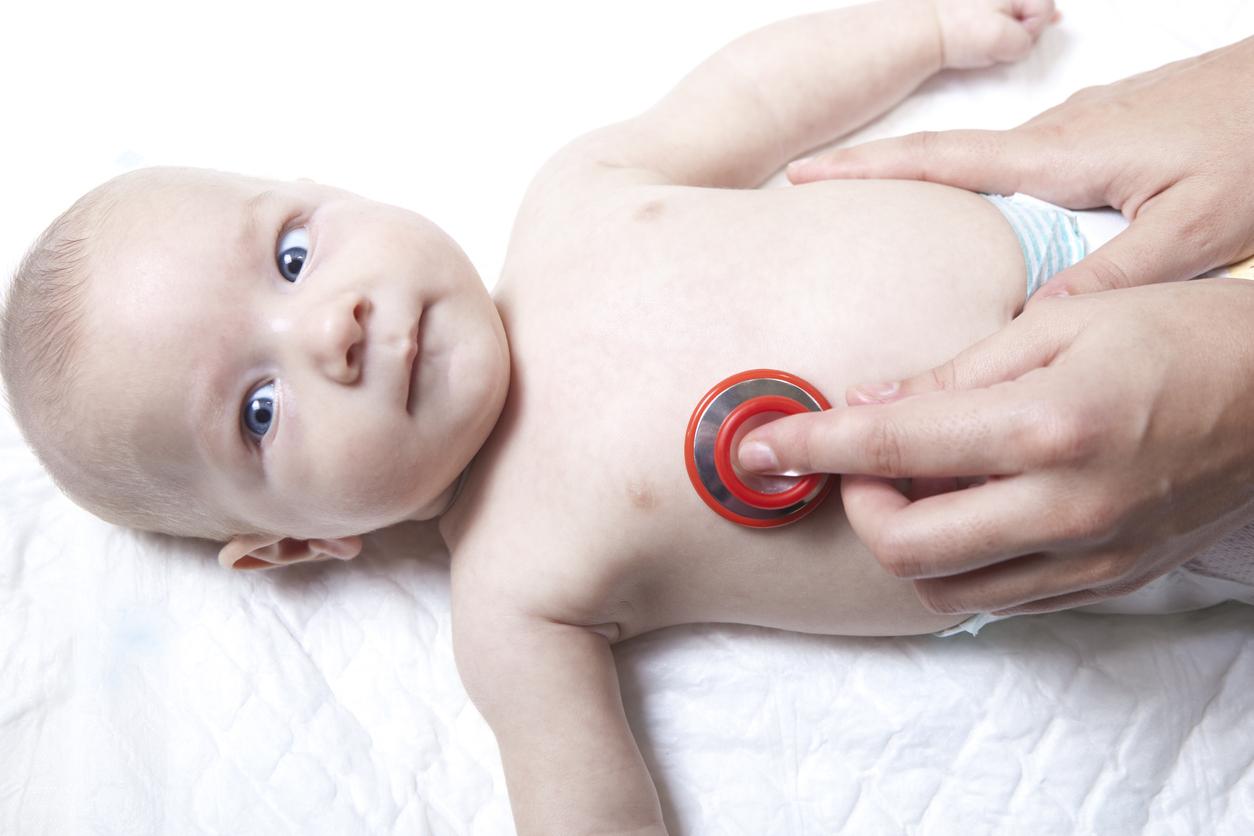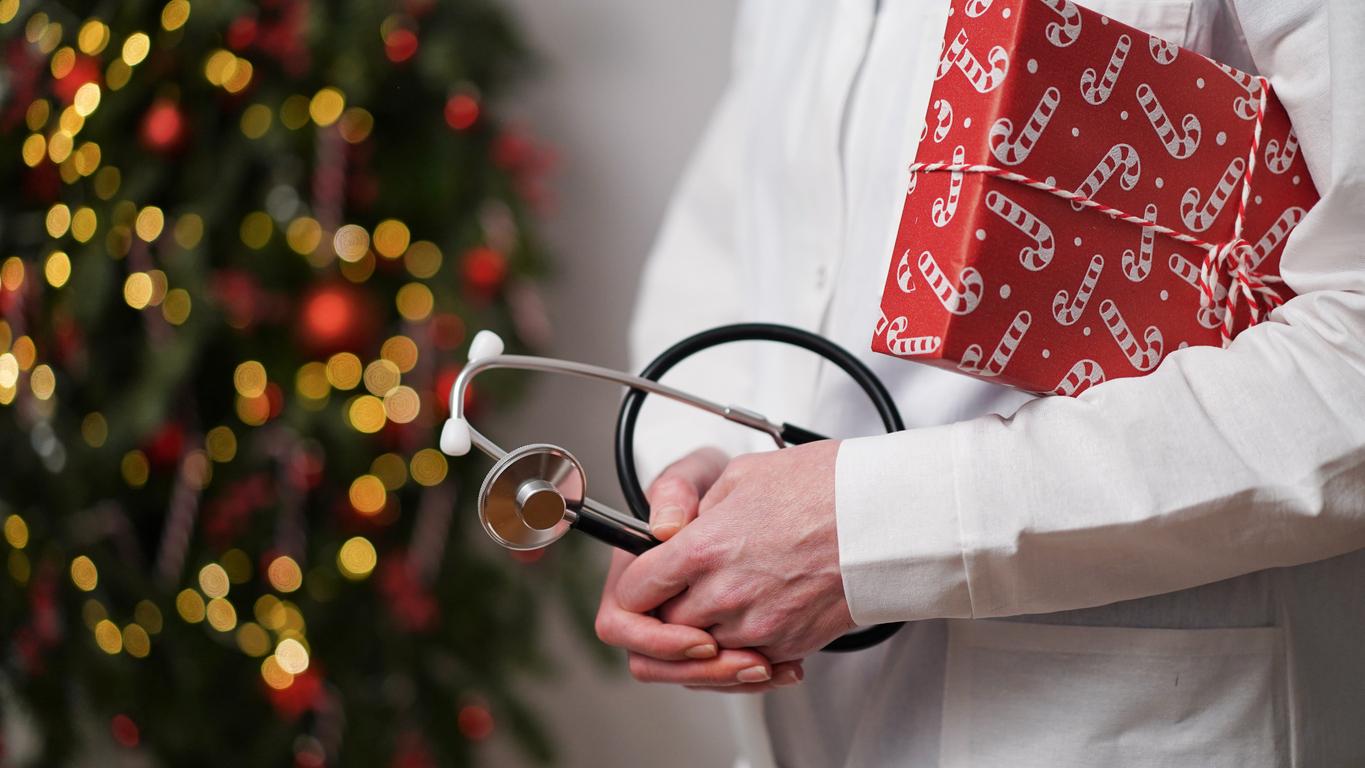Mococlonal antibody treatment is now available to prevent bronchiolitis in infants. Not to be confused with a vaccine authorized in the United States but which will not be available in France before 2024. An update on these new developments and their effect on a disease whose epidemic was particularly intense last winter.

- Preventive treatment against bronchiolitis can be prescribed and administered since September 15 in France.
- At the same time, the United States has just authorized a vaccine intended for pregnant women to prevent the disease in babies.
- The treatment available in France should make it possible to significantly reduce hospitalizations of young children.
This is THE good news of the start of the school year for all those who have a young child: the High Authority of Health (HAS) has just given the green light for the prescription and reimbursement of a new preventive treatment against bronchiolitis. A disease that affects nearly 30% of infants each winter. Respiratory discomfort, characterized by coughing and rapid, wheezing breathing, bronchiolitis, caused by infection with the RSV virus (respiratory syncytial virus), although it is most often benign, can lead to complications and require hospitalization.
Since September 15, preventive treatment has therefore been accessible in France. Developed by the Sanofi laboratory and based on the molecule nirsevimab administered as a single intramuscular injection, it provides passive immunity against the disease. But be careful: this is not a vaccine. This preventive treatment is a monoclonal antibody which helps develop an immune response to the virus responsible for bronchiolitis in young children.
Why is the arrival of this treatment for bronchiolitis eagerly awaited?
If bronchiolitis has become a common illness in winter among young children, during the previous season, winter 2022-2023, it reached an intensity never before observed. First, according to the report communicated by the Public Health France agency, it started very early in the season, from the first week of October, that is to say six weeks earlier than the average observed during the previous years.
Above all, it led to more than 73,000 visits to the emergency room, more than 26,000 of which were followed by hospitalization for children under 2 years old. The number of babies requiring intensive care has even exceeded the capacities of pediatric services several times.
How to protect infants from bronchiolitis with the new treatment?
Marketed under the name Beyfortus, available in France since September 15, it is a prophylactic treatment which aims to strengthen the immunity of infants against the RSV responsible for the disease. Until now, there was only one treatment for bronchiolitis, offered by the AstraZeneca laboratory. But this is a treatment only reserved for babies at risk.
This new preventive treatment which can only be delivered on medical prescription is intended for all babies born since February 2023. It must be administered either by a doctor or by a nurse, in a single intramuscular injection in the thigh from the start of the season in which the epidemic occurs or from birth, and in any case before leaving the maternity ward, in infants born during the epidemic.
Do not confuse this treatment with a bronchiolitis vaccine authorized in the United States.
Preventive treatment based on a monoclonal antibody, the Beyfortus is not a vaccine, even if it acts on the immune response of infants. This is noteworthy because, a few weeks before the green light from the HAS on this new product, the United States had authorized a vaccine developed by the Pfizer laboratory against bronchiolitis last August. .
But this vaccine, although it has been approved by the European Medicines Agency, is not yet available in France. Its arrival would, at best, be expected sometime in 2024.
Its particularity is that it must be administered not to infants but to pregnant women, between 32 and 36 weeks. According to the FDA, the American drug agency, this vaccine would protect infants during the first six months of their life.
Will monoclonal antibody treatment prevent an epidemic of bronchiolitis for the 2023-2024 season?
According to the National Council of Pediatric Professionals, the results of three clinical trials which were conducted between 2016 and 2023 on 12,000 infants show that this treatment makes it possible to reduce hospitalizations for RSV infection by 80% and very severe forms by 75%. of the disease.
Enough to bring a “improvement”or even a “revolution” in the prevention of bronchiolitis, according to several pediatricians. But despite the arrival of this new weapon of which the government has ordered 200,000 doses, the HAS emphasizes that “its administration cannot replace compliance with ‘barrier’ measures such as hand washing, wearing a mask by people close to the baby and suffering from respiratory illnesses, even mild ones, and ventilation of rooms.“.
















